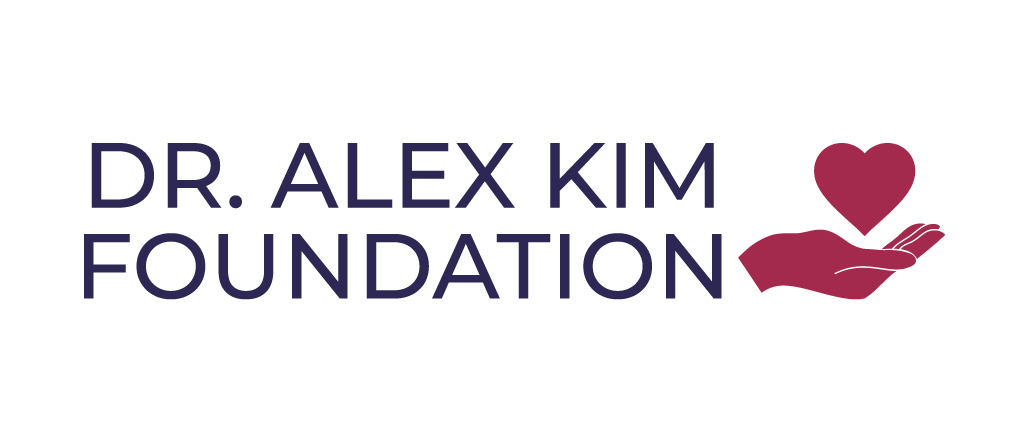Mental health challenges are a growing concern worldwide, with individuals of all ages and backgrounds grappling with anxiety, depression, and other disorders. Amid these challenges, faith-based initiatives are increasingly recognized as a valuable resource for mental health support. Spiritual wellness—the sense of connection, purpose, and peace derived from one’s beliefs—can play a critical role in fostering resilience and healing. Faith-based programs offer holistic approaches that combine emotional, social, and spiritual care, often filling gaps in traditional mental health services.
Understanding Spiritual Wellness and Mental Health
Spiritual wellness encompasses the values, beliefs, and practices that help individuals find meaning and purpose in life. While spirituality is not synonymous with religion, it often involves elements of faith, community, and ritual. Research indicates that spiritual practices, such as prayer, meditation, and communal worship, can reduce stress, enhance emotional regulation, and provide a sense of belonging—all of which contribute to better mental health outcomes.
Faith-based initiatives leverage these principles to address mental health challenges in several impactful ways, particularly for underserved populations.
Faith-Based Counseling: Integrating Spirituality and Therapy
One of the most direct ways faith-based initiatives support mental health is through counseling services that incorporate spiritual guidance. These programs often employ counselors trained in both mental health care and spiritual traditions, providing a dual approach to healing.
For example, religiously affiliated organizations may offer grief counseling that combines psychological techniques with faith-based practices like prayer or scripture study. This integration can be particularly comforting for individuals who find solace and strength in their faith during times of crisis.
Community Support Networks
Faith communities often act as extended families, offering emotional and practical support to their members. For individuals facing mental health challenges, these networks provide a safe space for sharing struggles without fear of stigma.
Support groups hosted by faith-based organizations can be especially effective. Groups for addiction recovery, such as Alcoholics Anonymous, often incorporate spiritual principles, emphasizing the role of a higher power in the journey to sobriety. Similarly, peer-led support groups in churches, mosques, or temples can foster connection and mutual encouragement.
Promoting Mindfulness and Stress Reduction
Many faith traditions include practices that align with modern mindfulness techniques. Meditation, yoga, chanting, and reflective prayer are common spiritual exercises that promote relaxation and mental clarity.
For example, mindfulness-based stress reduction (MBSR), a widely used therapeutic approach, has roots in Buddhist meditation. Similarly, Christian contemplative prayer and Islamic dhikr (remembrance) offer structured methods for focusing the mind and cultivating inner peace. Faith-based initiatives often incorporate these practices into workshops, retreats, or weekly services, making them accessible to the wider community.
Addressing Social Determinants of Mental Health
Faith-based organizations frequently address social issues—such as poverty, homelessness, and food insecurity—that contribute to mental health struggles. By meeting basic needs, these programs create a foundation for mental well-being.
For instance, churches or synagogues that operate food banks or housing assistance programs provide not only material aid but also a sense of dignity and care. These acts of service reinforce community ties and remind individuals that they are not alone in their struggles.
Building Resilience Through Purpose and Hope
Spiritual teachings often emphasize themes of resilience, redemption, and hope. Faith-based initiatives leverage these teachings to help individuals reframe challenges as opportunities for growth.
Programs like pastoral counseling or spiritual retreats encourage participants to reflect on their experiences and draw strength from their faith. By fostering a sense of purpose, these initiatives help individuals overcome feelings of hopelessness and develop a more positive outlook on life.
Tailored Outreach for Marginalized Groups
Faith-based initiatives are often well-positioned to reach marginalized populations, including refugees, immigrants, and low-income families. These communities may distrust formal healthcare systems due to cultural barriers or past discrimination, but they often turn to faith leaders for guidance.
By collaborating with mental health professionals, faith leaders can bridge this gap, providing culturally sensitive care that respects individuals’ spiritual and emotional needs.
Examples of Impactful Faith-Based Mental Health Programs
•Mental Health Ministries: This interfaith program offers educational resources for congregations to support members dealing with mental health issues.
•Catholic Charities Counseling Services: Combining faith-based values with clinical expertise, this organization provides affordable mental health care to diverse populations.
•Muslim Wellness Foundation: Focused on the mental health needs of the Muslim community, this foundation addresses stigma and promotes wellness through workshops and advocacy.
The Alex Kim Foundation’s Role in Supporting Spiritual Wellness
At the Alex Kim Foundation, we understand the profound connection between spiritual wellness and mental health. Through our faith-based initiatives, we aim to empower individuals to navigate life’s challenges with resilience and hope. From counseling services to community outreach programs, we are committed to promoting holistic well-being for all.
Explore how you can support or benefit from our initiatives. Together, we can foster mental health and spiritual growth in every community we serve. Visit our website to learn more.
Change Lives with the Dr. Kim Foundation
Contact Us Today
Mental health challenges are a growing concern worldwide, with individuals of all ages and backgrounds grappling with anxiety, depression, and other disorders. Amid these challenges, faith-based initiatives are increasingly recognized as a valuable resource for mental health support. Spiritual wellness—the sense of connection, purpose, and peace derived from one’s beliefs—can play a critical role in fostering resilience and healing. Faith-based programs offer holistic approaches that combine emotional, social, and spiritual care, often filling gaps in traditional mental health services.
Understanding Spiritual Wellness and Mental Health
Spiritual wellness encompasses the values, beliefs, and practices that help individuals find meaning and purpose in life. While spirituality is not synonymous with religion, it often involves elements of faith, community, and ritual. Research indicates that spiritual practices, such as prayer, meditation, and communal worship, can reduce stress, enhance emotional regulation, and provide a sense of belonging—all of which contribute to better mental health outcomes.
Faith-based initiatives leverage these principles to address mental health challenges in several impactful ways, particularly for underserved populations.
Faith-Based Counseling: Integrating Spirituality and Therapy
One of the most direct ways faith-based initiatives support mental health is through counseling services that incorporate spiritual guidance. These programs often employ counselors trained in both mental health care and spiritual traditions, providing a dual approach to healing.
For example, religiously affiliated organizations may offer grief counseling that combines psychological techniques with faith-based practices like prayer or scripture study. This integration can be particularly comforting for individuals who find solace and strength in their faith during times of crisis.
Community Support Networks
Faith communities often act as extended families, offering emotional and practical support to their members. For individuals facing mental health challenges, these networks provide a safe space for sharing struggles without fear of stigma.
Support groups hosted by faith-based organizations can be especially effective. Groups for addiction recovery, such as Alcoholics Anonymous, often incorporate spiritual principles, emphasizing the role of a higher power in the journey to sobriety. Similarly, peer-led support groups in churches, mosques, or temples can foster connection and mutual encouragement.
Promoting Mindfulness and Stress Reduction
Many faith traditions include practices that align with modern mindfulness techniques. Meditation, yoga, chanting, and reflective prayer are common spiritual exercises that promote relaxation and mental clarity.
For example, mindfulness-based stress reduction (MBSR), a widely used therapeutic approach, has roots in Buddhist meditation. Similarly, Christian contemplative prayer and Islamic dhikr (remembrance) offer structured methods for focusing the mind and cultivating inner peace. Faith-based initiatives often incorporate these practices into workshops, retreats, or weekly services, making them accessible to the wider community.
Addressing Social Determinants of Mental Health
Faith-based organizations frequently address social issues—such as poverty, homelessness, and food insecurity—that contribute to mental health struggles. By meeting basic needs, these programs create a foundation for mental well-being.
For instance, churches or synagogues that operate food banks or housing assistance programs provide not only material aid but also a sense of dignity and care. These acts of service reinforce community ties and remind individuals that they are not alone in their struggles.
Building Resilience Through Purpose and Hope
Spiritual teachings often emphasize themes of resilience, redemption, and hope. Faith-based initiatives leverage these teachings to help individuals reframe challenges as opportunities for growth.
Programs like pastoral counseling or spiritual retreats encourage participants to reflect on their experiences and draw strength from their faith. By fostering a sense of purpose, these initiatives help individuals overcome feelings of hopelessness and develop a more positive outlook on life.
Tailored Outreach for Marginalized Groups
Faith-based initiatives are often well-positioned to reach marginalized populations, including refugees, immigrants, and low-income families. These communities may distrust formal healthcare systems due to cultural barriers or past discrimination, but they often turn to faith leaders for guidance.
By collaborating with mental health professionals, faith leaders can bridge this gap, providing culturally sensitive care that respects individuals’ spiritual and emotional needs.
Examples of Impactful Faith-Based Mental Health Programs
•Mental Health Ministries: This interfaith program offers educational resources for congregations to support members dealing with mental health issues.
•Catholic Charities Counseling Services: Combining faith-based values with clinical expertise, this organization provides affordable mental health care to diverse populations.
•Muslim Wellness Foundation: Focused on the mental health needs of the Muslim community, this foundation addresses stigma and promotes wellness through workshops and advocacy.
The Alex Kim Foundation’s Role in Supporting Spiritual Wellness
At the Alex Kim Foundation, we understand the profound connection between spiritual wellness and mental health. Through our faith-based initiatives, we aim to empower individuals to navigate life’s challenges with resilience and hope. From counseling services to community outreach programs, we are committed to promoting holistic well-being for all.
Explore how you can support or benefit from our initiatives. Together, we can foster mental health and spiritual growth in every community we serve. Visit our website to learn more.

